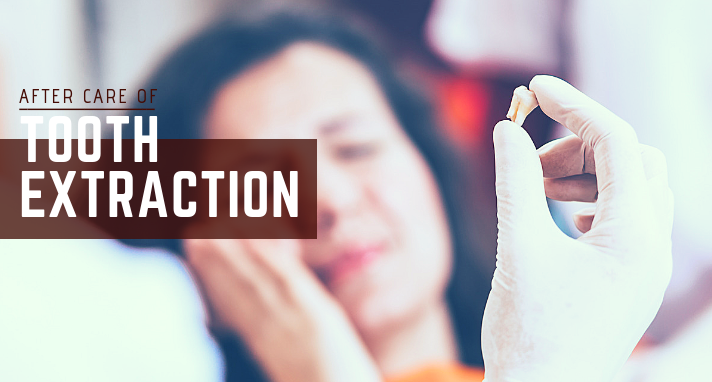HOW TO CURE YOUR MOUTH AFTER TOOTH EXTRACTION
Have you just extracted a tooth or are going for this procedure? If your answer to either of these questions is yes, then you need to stay prepared for a quick recovery. You may visit a reputed dental centre in Merton, South Wimbledon where the dentists can help to cure your mouth completely after getting a tooth removed.
COMMONLY EXTRACTED TEETH
Wisdom teeth removal is a common category for tooth extraction. Many dental practitioners will suggest removing the third molars or wisdom teeth before they develop completely. This helps to get rid of probable dental problems that can occur at any time in the future. One issue that might take place is developing an impacted tooth that does not have sufficient space to grow in the mouth. Other problems with impacted teeth consist of – bite interference, infection, adjacent teeth decay and gum disease.
TOOTH EXTRACTION AFTERCARE
The dentist places a pack on the biting area immediately after the tooth gets removed. This will apply pressure on the wound and thus, form a blood clot. If there is some wound in the mouth, it will bleed more as saliva prevents a layer from forming. The main objective after an extraction procedure is not to disturb the clot.
- First hour: Bite down firmly on gauze packs placed on the surgical areas thus, ensuring they are at the right place. Don’t change them for the first hour till bleeding isn’t controlled. The packs may be removed gently after an hour.
- Proper exercise: Avoid the surgical area completely and do not rinse or look into the area with any object as this can irritate the area. Brush your teeth gently so that you don’t get hurt in any way.
- Oral hygiene: You should brush your teeth after the surgery and have a clean mouth. If there is some bleeding, rinse gently for at least 2-3 times in a day after eating. Practice good oral hygiene habits soon after the surgery.
- Avoid activities: Take complete bed rest for the first day after the surgery. Lifting, bending or exhausting activities might lead to increased swelling, bleeding and severe pain. You should avoid doing exercises for 3 to 4 days after surgery.
- Swelling: Swelling is something common post surgery and can be reduced with a cold pack, bag of frozen peas in a towel or an ice that can be applied firmly to the cheek near the surgical area. This needs to be applied 20 minutes on and 20 minutes off within 24 hours after the surgery. If you are prescribed medicine for swelling, make sure you take it, as been directed.
- Dry sockets: If the blood clot gets dislodged or loosened, you might have a dry socket where the bone gets exposed. Dry sockets usually last for many days and might lead to discomfort including ear pain.
- Severe pain: Oral surgery usually involves some pain and discomfort. Your dentist will prescribe certain medication to help you overcome the dental complications.
- Diet: Eat foods that ensure comfort and avoid taking hot items. Do not use a straw after the surgery. Do not take rice, sunflower seeds, nuts, popcorn that might get stuck in between the teeth and go for milk shakes, puddings, yogurts, etc.
- Mouth rinse: It is necessary to have a clean and healthy mouth after the surgery. Take 1/4 teaspoon of salt in 8 ounce glass of warm water and rinse gently for five minutes. Repeat the process for at least two or three times in a day.
- Healing: After the surgery, the first two days are uncomfortable and some swelling exists. You will feel comfortable on the third day and can start with a substantial diet. In case you do not find any improvement on your dental health, see a dentist immediately.
Every individual will have their own case as no two mouths appear the same. You may talk to your local dentist in Wimbledon who can help in solving your oral issues for a healthy mouth.
